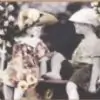Shamsur Rahman no more
Rafiq Hasan
Shamsur Rahman no more
 Photo Courtesy: Nasir Ali Mamun |
"I'll soon be gone, quite alone/And quietly, taking none of you along/On this aimless journey. Useless/To insist, I must leave you all behind. No, I'll take nothing at all/On this solitary journey...", wrote Shamsur Rahman in his poem "Before the Journey".
Shamsur Rahman has gone leaving the whole nation in a deep shock.
The eminent poet breathed his last at 6:30pm at Bangabandhu Sheikh Mujib Medical University Hospital (BSMMUH) yesterday.
Dr Iqbal Ahmed Chowdhury, assistant professor of BSMMUH, formally declared the country's top poet dead at about 6:45pm. The poet died as his blood pressure fell to the lowest level, he told newsmen at the hospital.
Rahman's blood pressure had been deteriorating since 3:00pm and the doctors could not bring it back despite administering heavy doses of medicine, he said.
The doctors removed the close relatives of the poet from the intensive care unit (ICU) and told poet Abu Bakar Siddique about Rahman's death.
Shamsur Rahman was admitted to hospital on August 6 with serious illness and kept at the ICU.
He left behind wife, a son, three daughters, two brothers and four sisters. His only son Faiaz Rahman works at a private firm and daughters Fousia Rahman and Sheba Rahman live abroad.
"We could not realise what a great gift poet Shamsur Rahman was for the country as well as Bangla language," said Abu Bakar Siddique.
Poet Shamsur Rahman has earned a permanent place in Bangla poetry and will be remembered forever, said poet Samudra Gupta, general secretary of Jatiya Kabita Parsihad.
Meanwhile, a few litterateurs and relatives of poet Rahman were critical of the government for dillydallying in sending him abroad for better treatment. They termed the government's assurance of sending him abroad "only a political stunt".
As the death news of the country's premier poet spread, a large number of people, including poets and writers, university teachers, cultural and social activists, political leaders, admirers and relatives, gathered at the BSMMUH to pay the last tribute to their beloved poet.
The body of Shamsur Rahman was taken out of the ICU on a stretcher amid heavy crowd of journalists, camera crew from electronic media, relatives and visitors. The body of Rahman was then taken to his house at Shyamoli.
His first namaz-e-janaza was held at the SOS Shishu Palli Jame Mosque at 10:30pm. His body was kept at the Birdem mortuary.
The poet's body will be kept at the Central Shaheed Minar from 10:30am to 12:30pm for people to pay tribute.
The second namaz-e-janaza will be held at the Dhaka University central mosque after the Juma prayers today.
Later, the poet will be laid to rest at the Banani graveyard beside his mother's grave.
A condolence meeting on poet Shamsur Rahman will be held at the Shaheed Minar on August 22.
Prime Minister Khaleda Zia and Leader of the Opposition Sheikh Hasina in separate messages expressed deep shock at the death of Shamsur Rahman.
Awami League (AL) leaders Nuha-ul-Alam Lenin, Abdul Mannan Khan, Yafes Osman, Dr Mostafa Jalal Mohiuddin and Asim Kumar Ukil placed floral wreaths at the dead body of poet Rahman last night on behalf of Leader of the Opposition and AL President Sheikh Hasina, said a press release.
AL leaders Tofail Ahmed, Amir Hossain Amu and Asaduzzaman Noor went to the poet's Shyamoli residence to see the poet for the last time.
PROFILE
Shamsur Rahman was born on October 23, 1929 at Mahuttuli in Dhaka. He was the fourth among thirteen children of late Mokhlesur Rahman Chowdhury. Rahman studied at Pogos School from where he passed his matriculation in 1945. He passed the intermediate from Dhaka College.
Rahman started writing poetry after graduating from Dhaka College at the age of 18.
He studied English literature at Dhaka University (DU) and passed the BA in 1953. He also received his MA securing the second place in second class.
Rahman had a long career as a journalist and was the editor of the now defunct Dainik Bangla and weekly Bichitra.
Shamsur Rahman started composing poetry at a time when most people, particularly the Bangalee Muslims, were not aware of the development of modern poetry. He started on the ground prepared by the poets of the 1930s and developed and added new features to Bangla poetry.
He popularised modern Bangla poetry among the general mass by successfully expressing their emotion about the country, its people and their language.
A prolific writer, Rahman authored nearly 100 books, of which more than sixty are collections of poems.
Rahman won numerous awards including the Bangla Academy Award in 1969, Ekushey Padak in 1977 and the Swadhinata Award in 1991.
RAHMAN AND BANGLA POETRY
With the geographical division of the Bangla province in 1947, the Bangla literature also got divided. One group was dominated by writers based in Kolkata, capital of West Bengal, and another by those in Dhaka, the new capital city of the then East Pakistan.
The Dhaka-based Bangla poetry was also divided mainly in two groups. Ahsan Habib and Abul Hossain led the progressive group who were deeply influenced by the West and Bangalee poets of the 1930s. The other group led by Farrukh Ahmed and Syed Ali Ahsan was termed pro-Pakistan group.
Later, Shamsur Rahman, Al Mahmud and Shaheed Quadri emerged as the most influential poets in the progressive front during the '50s-'60s of the last century.
Rahman was the most active in this group and relentless in composing poetry.
Actually, the new capital city of Dhaka gave birth to Rahman, and he is the poet of Dhaka in a true sense. Probably, he is the only successful poet in modern Bangla literature who was born and brought up in Dhaka and spent his entire life here.
Rahman also loved Dhaka very much. He wrote memories of his childhood in a book titled "Smritir Shahar (the reminiscent city), which is considered as a classic document of Old Dhaka.
In his over-half-a-century literary career, he also wrote five novels, a number of short stories, many patriotic songs.
The poet was deeply rooted in his own tradition.
He successfully reflected the colloquial language of Dhaka in his works, especially in the poetry. His poem "Ei Matowala Rait" (this drunken night) is full of idioms and dialect of the Dhakaites. Rahman prominently used Old Dhaka's dialect, which is a mix-up of Urdu, Persian and Bangla words.
Urban themes, symbols, signs and resemblance also widely figure in his poems.
As he was born and brought up in Old Dhaka, his use of those foreign words never seems irrational. Rather, Rahman's use of Urdu and Persian words adds an extra favour and a new taste in Bangla poetry. Through this, he virtually enriched Bangla language.
As a poet and a citizen of Dhaka he could not refrain himself from the political development of the then East Pakistan leading ultimately to the emergence of Bangladesh. Although he was never active in politics, he composed a number of political poems, which were particularly devoted to the country's struggle for freedom and independence.
One of his most popular poems in this group is "Asader Shirt" (Asad's shirt) where the poet gives an emotional description of the death of a young demonstrator, who was brutally killed in police firing at a protest rally against the despotic army rule.
"Like bunches of blood-red oleander, like flaming clouds at sunset/Asad's shirt flutters/In the gusty wind, in the limitless blue./To the brother's spotless shirt/His sister had sown/With the fine gold and thread/Of her heart's desire/Button which shone like stars/How often had his ageing mother/With such tender care/Hung that shirt out to dry/In her sunny courtyard."
These lines excerpted from the poem translated by Syed Najmuddin Hashim helped spread the anger quickly among the people against the Pakistani autocratic regime. Rahman was always vocal against the tyrannical rule and suppression of the people by the West Pakistani rulers.
After the independence of Bangladesh, Rahman emerged as the most powerful poet of the country, reflecting the true spirit of independence and the Liberation War. He successfully used the terms and words related to independence.
Rahman composed a number of poems which got immense popularity among the mass people and were highly acclaimed by the critics.
"Swadhinata Tumi" (To Independence) is one of his most popular poems, in which the poet tries to reflect the heartfelt urge and describes the true meaning of independence and freedom.
As he writes in the poem: "Independence, You are/Like un-decaying poems and immortal songs of Rabindranath/Independence, you are/Like waving of long curling hair of Kazi Nazrul/Great man, vibrating with the joy and happiness of creation..."
Rahman was also very active during the struggle against the autocratic rule of HM Ershad. He even took the risk of losing the editorship of the government-owned Dainik Banlga and joined the protest rally against Ershad regime.
His famous poem "Odbhut Uter Pithhe Cholechhe Swadesh" (the country riding a peculiar camel) is about the misrule and political stagnation prevailing in the country during the Ershad regime.
































